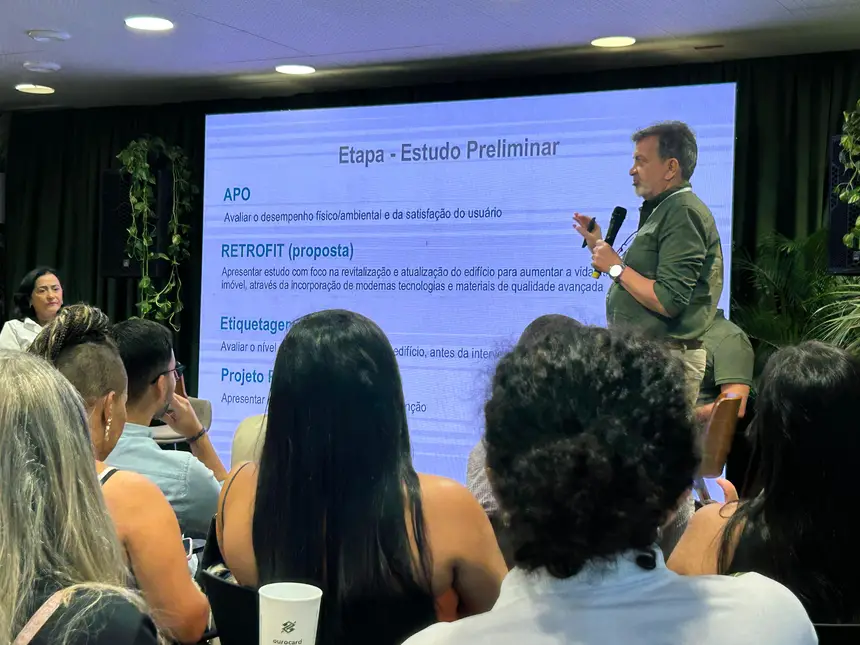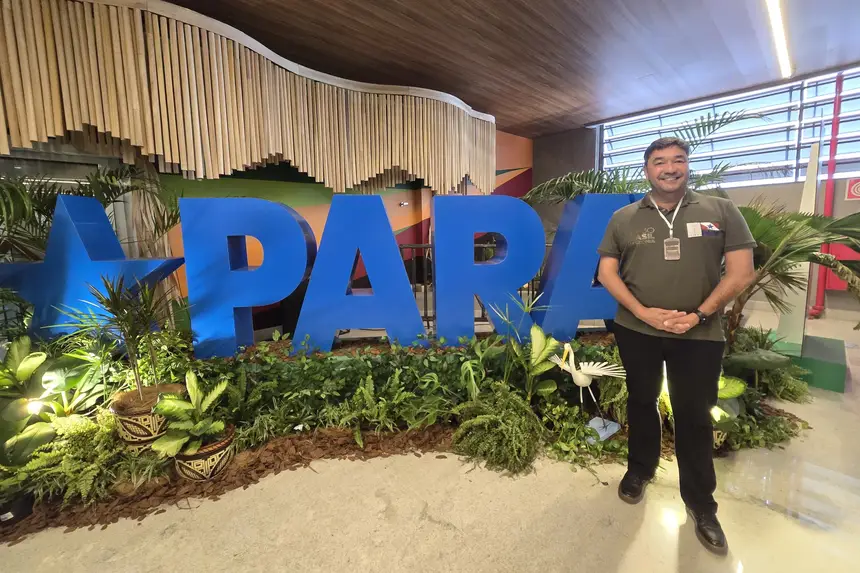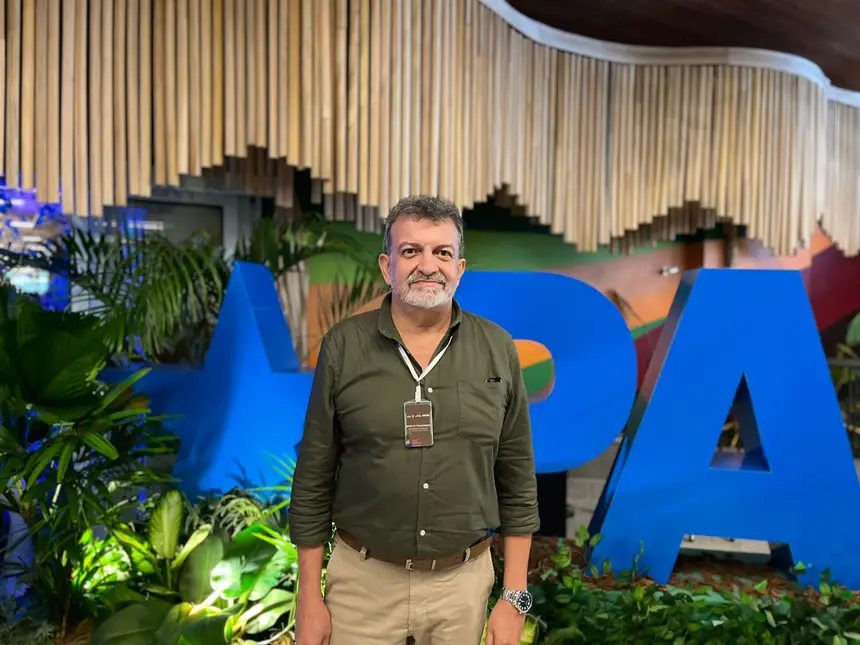Hemopa presents pioneering sustainable retrofit experience at COP30 panel
The foundation highlights a sustainable retrofit project that modernizes the headquarters building and places public health in Pará on the climate agenda of COP30

The Pará Hemotherapy and Hematology Center Foundation (Hemopa) presented, this Wednesday (19), at the Green Zone of COP30 in Belém, its unprecedented experience of sustainable retrofit in a public building. The institution, linked to the Pará State Department of Public Health (Sespa), is the only health unit in the state network with official participation in the conference, reinforcing the commitment of the Government of Pará to integrate innovation, environmental management, and essential public services.
Held in the Castanheira room, the panel brought together Hemopa specialists to discuss how energy efficiency solutions, bioeconomy, and sustainable architecture can transform public health buildings. The retrofit of the headquarters building was presented as a milestone for the SUS in Pará, uniting technology, humanization, and operational cost reduction.

The president of Hemopa, Paulo André Castelo Branco Bezerra, emphasized that bringing the project to COP30 symbolizes the Foundation's leadership as the first blood center in Brazil to adopt a complete model of environmental rehabilitation. According to him, the initiative "improves thermal comfort, qualifies internal flows, and creates a more humanized environment for staff, donors, and patients," by integrating high-efficiency refrigeration, solar energy, and water capture systems. The leader reinforced that the retrofit represents "a physical and operational transformation that reduces costs and elevates the quality of care."
Administrator Luís Renato Franco Hagmann de Figueiredo detailed that the Post-Occupancy Evaluation (POE) was decisive in guiding the interventions. The findings identified, for example, the excess heat absorbed by the roof, which compromised the cooling and energy performance of the building. Opportunities for water reuse and adjustments in temperature differences between internal sectors were also pointed out. "With the new air conditioning system and improvements to the building envelope, we corrected these distortions and advanced to achieve energy labeling level A," he stated.

The panel also featured representatives from the Pará Housing Company (Cohab), who presented the Your House Program, an initiative that uses ecological technologies and regional materials in social housing. Although the project enriched the debate, Hemopa's case remained the center of discussion on how essential services can consistently adopt sustainable practices.
The table also included a report from the Combu Community, presented by social activist Paulo Cohen, demonstrating how ecological solutions have been incorporated into riverside daily life.

The initiatives directly dialogue with the strategic axes of COP30, such as mitigation and adaptation to climate change, sustainable cities, just transition, and innovation based on bioeconomy. With active participation in the conference, Hemopa reaffirms that sustainability and public health go hand in hand and that modernizing SUS structures is essential to build a more resilient future for the Amazon.











